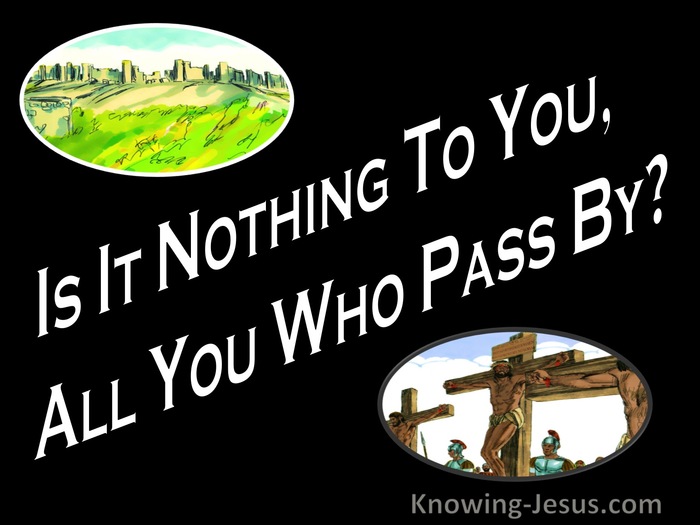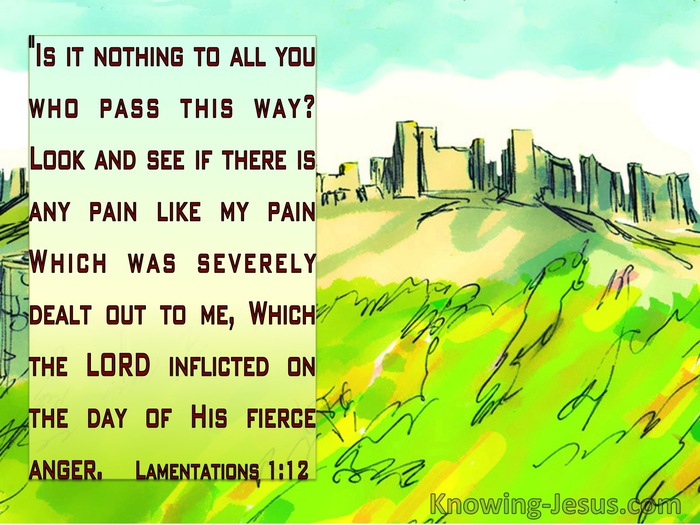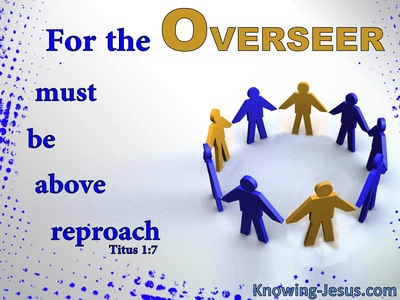◄ What Does Lamentations 1:12 Mean? ►
"Is it nothing to all you who pass this way? Look and see if there is any pain like my pain Which was severely dealt out to me, Which the LORD inflicted on the day of His fierce anger.
Lamentations 1:12(NASB)
Verse of the Day
Although Lamentations was probably written by Jeremiah, no specific author is identifiable, giving everyone who was affected by the Babylonian siege of the Jerusalem, the destruction of the Temple, and the deportation of the people, an opportunity to identify with the intense grief of the author and to lament the sorry state of the people of God.
The opening section describes the solitary condition of the formerly majestic city of Jerusalem, which had become devoid of its people. Many had been slain with the sword, while others were forced into slavery. Lamentations speaks of a depressive darkness that had enveloped the land, and the bitter affliction the people of Judah underwent. They had refused to harken to the many prophetic warnings to repent, but they would not turn from their wicked ways.
This passage highlights the harsh servitude that had overtaken God's unrepentant nation. It calls attention to the desolate state of the once thriving community. It gives voice to pain that Jerusalem endured, due to Israel's sin.
There were no joyful feast days and the sound of the happy voices that echoed through its bustling streets, stands in stark contrast with Jerusalem's silent pain which is likened to a bereaved widow: "Judah has gone into exile under affliction," is the prophets heart-breaking confession: "Her people have been placed under harsh servitude. She dwells among the nations, but has found no rest there. All her pursuers have overtaken her in the midst of deep distress."
Because the citizens of Judah had rebelled against God, broken their covenant, and followed after pagan idols, they were being severely punished by the Lord, Who used the surrounding nations as His chastening rod and battering ram. While the first eleven verses describe the holy city from the perspective of a lone resident of Judah bewailing the city's destruction, verse 12 gives the perspective of a cold-hearted, indifferent onlooker, as Jerusalem asks: "Is it nothing to all you who pass this way? Is it nothing to you? Look and see if there is any pain like my pain which was severly dealt out to me... which the LORD inflicted on the day of His fierce anger."
The pitiful cry comes from Jerusalem to passers-by. She is calling attention to her devastating destruction, which was brought about by her idolatrous citizens. The unhappy state of Jerusalem resulted from God's direct but well-deserved judgement on His people, and the city calls out mournfully to passing strangers to behold her severe pain, which was the Lord's righteous judgement on His unrepentant people.
Jerusalem's pathetic appeal to neighbours and strangers as they pass by arouses compassion in us all. Her suffering resulted from the sin of her unrepentant people. But in this verse her misery and wretchedness prefigures the deep agonies of the Lord Jesus, whose rebellious people rejected His beauty, despised His Person, and refused His gracious offer of salvation.
The very streets that cried out: "Is it nothing to you, all ye that pass by?" are the ones through which the Saviour stumbled as He made His way to Calvary: "The Place of the Skull." There has never been pain like the pain Christ underwent, and there has never been a more severe blow dealt on a man than the wrath poured out on Christ, for your sake and mine.
Centuries of indifference has passed since the sinless Son of Man died at Calvary in our place, but how few really care? But the burning question that must be faced by every member of the human race: "What think ye of Christ? Is it nothing to YOU all ye that pass by?"
Although the book of Lamentations may not contain any Messianic prophecies or future predictions, there are many lessons to learn about the devastating effect of sin and the justified judgement God on sin. And although the suffering city of Jerusalem is not identified as a 'type' of Christ, there is a clear parallel with the untold pain and suffering He underwent when He gave His sinless life as the ransom price for the sin of the whole world.
My Prayer
Heavenly Father, thank You for the book of Lamentations and the many lessons I can learn from its pages. May I never fail to view the terrible consequences of sin and the unspeakable torture and pain that was so severely dealt out to the Lord Jesus on my behalf, as the full force of God’s terrible wrath was poured out upon Him, in my stead. Keep me low at the Cross and broken before You, and may my heart be ever grateful for all that He did for me at Calvary. It is in His name I pray, AMEN.
Choose a Verse from Lamentations 1
Lamentations 1:12 Further Study
- Lamentations 1:12 in the Parallel Bible
- Lamentations 1:12 in the Thematic Bible
- Lamentations 1:12 Cross References
- Lamentations 1:12 Treasury of Scripture Knowing
- Lamentations 1:12 Sermons
- Lamentations 1:12 Prayers
- Lamentations 1:12 Images
- Choose Chapter
Never miss a post














